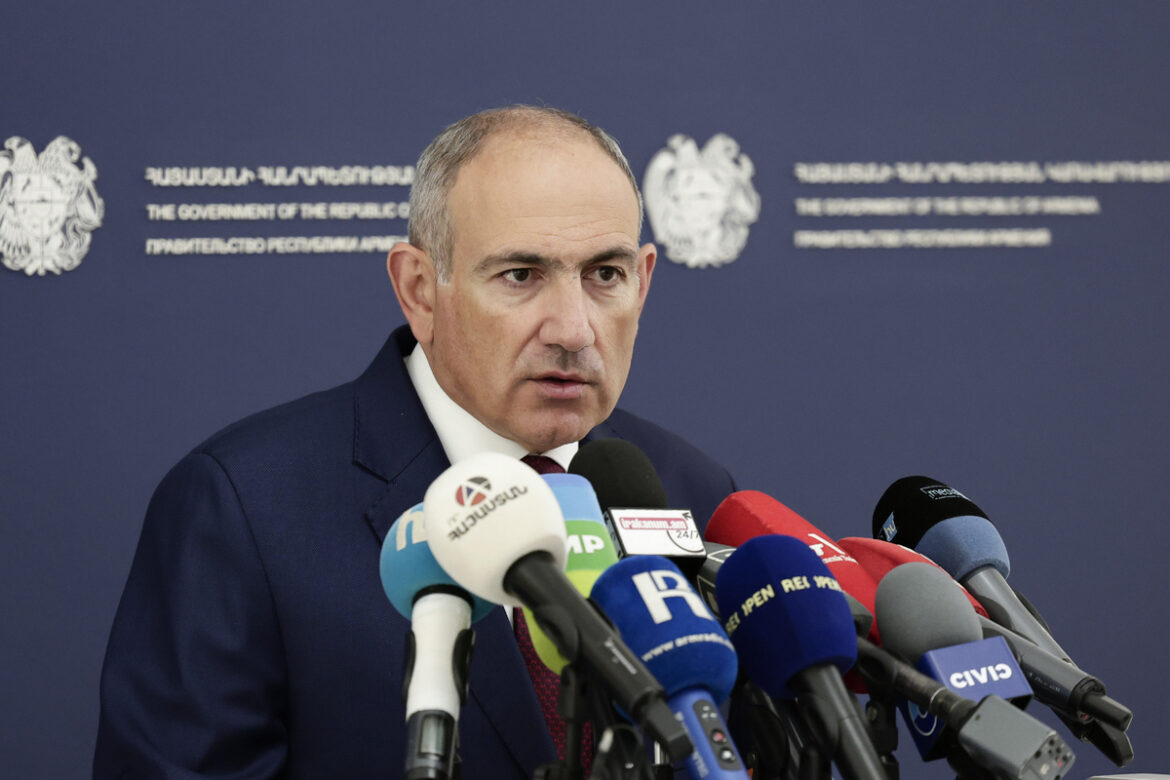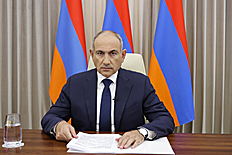Prime Minister Nikol Pashinyan declined on Thursday to specify when his government will hold a referendum on a new Armenian constitution, a change openly demanded by Azerbaijan as a condition for signing a peace treaty.
Baku has repeatedly stated it will not finalize a treaty with Yerevan unless Armenia alters its constitution, which it claims contains territorial claims to Azerbaijan. President Ilham Aliyev reiterated that precondition just hours after the two sides initialed a draft peace agreement during U.S.-mediated talks at the White House on August 8.
Although Pashinyan has publicly rejected the notion that constitutional provisions represent claims on Azerbaijani territory, he pledged last year to pursue a new constitution and reaffirmed that commitment this week.
“We are currently working on a new draft constitution and when it is ready, we will most likely hold a referendum,” Pashinyan told reporters. “But it has nothing to do with this parallel [peace] process, although it may have a strategic impact on that process.”
He gave no timeline for the vote, though observers suggest it could be scheduled alongside Armenia’s next parliamentary elections in June 2026. Pashinyan added that a referendum would be required only if the Constitutional Court rules that the draft peace treaty is inconsistent with Armenia’s current constitution.
Azerbaijan’s main objection concerns the constitutional preamble, which references Armenia’s 1990 declaration of independence. That declaration cites a 1989 act of unification adopted by the legislatures of Soviet Armenia and the Nagorno-Karabakh Autonomous Oblast. The only legal means of removing the preamble would be to adopt an entirely new constitution.
Despite insisting that the preamble does not amount to territorial claims, Pashinyan acknowledged in April that a new constitution should omit any reference to the 1990 declaration. His opponents seized on that remark, accusing him of tailoring Armenia’s fundamental law to Azerbaijan’s demands.
Opposition leaders have vowed to campaign against the proposed changes, framing them as a surrender of national principles under foreign pressure.
Pashinyan, however, downplayed the possibility of public rejection:
“I don’t think the people will vote against it if it turns out that it could have any impact on the peace process,” he said.




